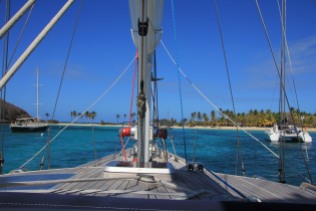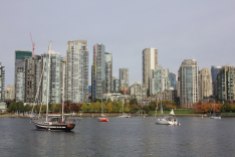As Hurricane Otto headed west north west the storm conditions we were experiencing faded away and luckily in Shelter Bay the forecast high winds did not reach us. Just 18 miles away in Portobello and Puerto Lindo where we had been anchored the previous week, they experienced sustained 50 knots with reported gusts of 80, and many boats dragged or broke moorings, at least 16 boats sank or ended up on the shore in Portobello alone although most of these were unattended boats. We were very thankful that our parts had arrived a week earlier than we had expected and we were in the sheltered marina when this storm developed.


Hurricane Otto – we are the blue dot in the south west quadrant – made history as a top end Cat2 storm with 110mph winds. Apart from being the first to develop this far south west, it was the latest hurricane ever to reach Cat2 strength in any year, and the first to hit Costa Rica.
The marina was without power for three or four days, we took the courtesy bus to the shopping mall on Thursday and could see dozens of trees and power cables down along the road linking the marina to the first set of locks across the Canal. We had a slight detour off-road across the army base as one road was being cleared of debris. On Friday we were able to go for a walk into the park after we had most of our jobs finished but unfortunately for us most of the animal kingdom were taking a mid-day nap and we didn’t see much other than some very pretty butterflies.







After torrential rain pretty much all night I discovered that I had left the forepeak locker hatch open as I had been airing it the day before, luckily it drains into one of our grey tanks as we had so much rain our 12 litre bucket left on deck was almost full. The rain eased at about 8am so we headed back into the park in search of Panama’s wildlife.


Keel billed Toucan


Thick Billed Euphonia

The Yellow-Throated Euphonia is very similar to the Thick-Billed but has a smaller yellow crest

The Chestnut-mandibled Toucan looked like a stuffed toy sitting in the tree!





This solitary shy Capuchi monkey was the only monkey we saw in the canopy

Coati belong to the racoon family. We saw a group of a dozen or so digging in the undergrowth. They have a very strong sense of smell and use their nose and strong paws to hunt and dig out lizards and rodents. Their long tails are used for balance and signalling to each other.

Turkey vultures are very common in Panama, when they aren’t circling in the thermals and rummaging through garbage they can be seen hanging out on posts and rooftops presumably drying out their plumage.
After ten days in the marina the weather improved enough for us to depart, still one part missing from our order from Marine Warehouse so we can’t go far. We sailed just 6 miles east from Colon to a deserted anchorage off of a small uninhabited island called Isla Naranjo Abajo. Tucked up behind a reef extending from the south west corner we kept out of the worst of the swell.






























